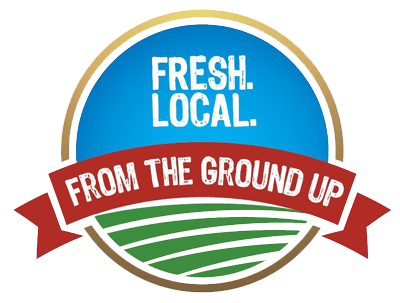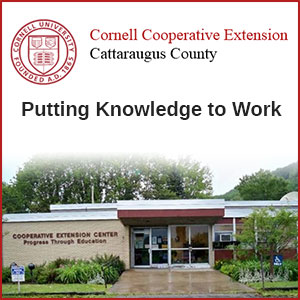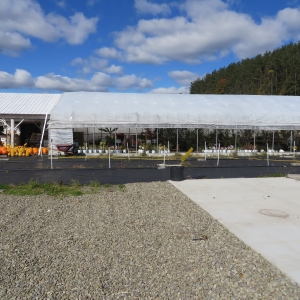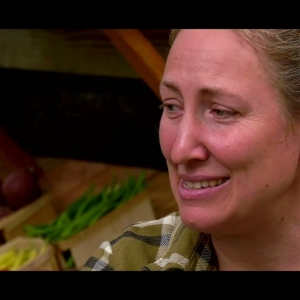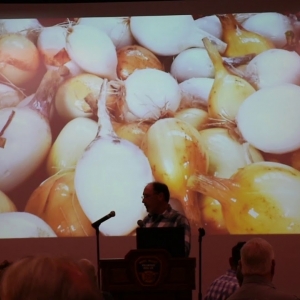Other Ag News:
WASHINGTON, Mar. 13, 2025 – The U.S. Department of Agriculture (USDA) announced that people recovering from recent severe storms, straight-line winds, flooding, landslides and mudslides may be eligible for food assistance through USDA’s Disaster Supplemental Nutrition Assistance Program (D-SNAP). Nearly 3,000 households in four counties in West Virginia are estimated to be eligible for this relief to help with grocery expenses.
Atlanta, GA, March 12, 2025 – Today, U.S. Secretary of Agriculture Brooke Rollins traveled to Atlanta, Georgia to deliver remarks to the National Rural Electric Cooperative Association (NRECA). Secretary Rollins and Georgia Commissioner of Agriculture Tyler Harper then met with elected officials at the Georgia State Capitol, participated in a roundtable discussion with farmers, and toured a local cattle operation.
WASHINGTON, March 11, 2025 – Today, following the inaugural meeting of the Make America Healthy Again Commission, U.S. Secretary of Agriculture Brooke Rollins and U.S. Secretary of Health and Human Services Robert F. Kennedy, Jr. announced their continued work on the 2025-2030 Dietary Guidelines for Americans (Guidelines).
For Immediate Release
Contact: Laura Zaks
National Sustainable Agriculture Coalition
press@sustainableagriculture.net
Release: NSAC Responds to Termination of Critical Local Food Funding, Envisions Future for Popular ProgramWashington, DC, March 11, 2025 – Today, the National Sustainable Agriculture Coalition (NSAC) lamented the termination of previously announced funding for the Local Food for Schools and Child Care Cooperative Agreement (LFSCC) and Local Food Purchase Assistance Cooperative Agreement program (LFPA). On Friday, March 7, the US Department of Agriculture (USDA) notified States, Territories and Tribes of the termination of previously announced 2025 funding for LFSCC and LFPA, stating that it no longer effectuates the Department’s priorities.
“USDA’s decision to re-initiate reimbursements on signed LFPA and LFS contracts is a welcome development, yet the termination of the LFPA25 cooperative agreements misses a key opportunity to bolster opportunities for farmers seeking financial stability through new and expanded domestic markets. LFPA is an incredibly popular program, generating enormous economic opportunities by fostering regional supply chains and investing in local farmers. We’re eager to get to work envisioning a future for these essential investments that support direct purchases and allow farmers to retain a larger share of the dollar,” said Mike Lavender, NSAC Policy Director.
These programs stabilize local food supply chains by supporting regional food purchases for schools, food pantries, community kitchens, and other assistance efforts. Beyond meeting a direct short-term need, these programs spurred business development and significant economic impact by directing hundreds of millions of federal dollars into the hands of small businesses and producers nationwide. These programs have demonstrated their success in promoting rural prosperity and farmer viability, which led to the allocation of additional funding through LFPA 2025 and LFSCC 2025.
“The decision to terminate the latest round of LFPA and LFSCC funding will have profoundly harmful economic impacts nationwide. Farmers and businesses have invested their own resources to scale operations to respond to local need and meet demand. This decision comes at a time where many have already planted for the upcoming season and may leave a substantial market gap for producers,” commented Hannah Quigley, NSAC policy specialist.
###
The National Sustainable Agriculture Coalition is a grassroots alliance that advocates for federal policy reform supporting the long-term social, economic, and environmental sustainability of agriculture, natural resources, and rural communities. Learn more and get involved at: https://sustainableagriculture.net
The post Release: NSAC Responds to Termination of Critical Local Food Funding, Envisions Future for Popular Program appeared first on National Sustainable Agriculture Coalition.
WASHINGTON, March 11, 2025 – The U.S. Department of Agriculture (USDA) released the following statement today regarding the status of probationary employees:
Every year, National Groundwater Awareness Week (March 9-15, 2025) advocates for the sustainable management and testing of groundwater to promote safe, reliable water sources. Groundwater provides a source for drinking water, irrigation and food production, making it a vital resource for rural communities. Without responsible, routine testing for contamination, however, groundwater can pose significant environmental and health risks that require immediate attention.
Asheville, NC, March 7, 2025 – U.S. Secretary of Agriculture Brooke Rollins surveyed natural disaster damage and met with U.S. Forest Service members in Western North Carolina yesterday, where recent wildfires and hurricanes have caused significant destruction. During her visit, Secretary Rollins toured the Blue Ridge Parkway to witness the devastation left by Hurricane Helene. She then received a wildfire operational briefing and participated in a U.S. Forest Service roundtable with local leaders in Asheville.
For Immediate Release
Contact: Laura Zaks
National Sustainable Agriculture Coalition
press@sustainableagriculture.net
Release: NSAC Holds Briefing as USDA Funding Freeze and Layoffs Threaten Farmers and Communities NationwideWashington, DC, March 6, 2025 – Today, the National Sustainable Agriculture Coalition (NSAC), a coalition of more than 150 farm, food, conservation, and rural organizations, held a virtual briefing on how the US Department of Agriculture (USDA) funding freeze and employee layoffs are affecting farmers and ranchers.
Panelists – who called on USDA to end the freeze and release funding on all signed contracts – included farmers from North Carolina, Arkansas, Wisconsin, Nebraska, and California. These farmers shared their own stories of how the ongoing federal funding freeze – in addition to significant layoffs at USDA – has created challenging and often dire circumstances for farmers and communities from coast to coast, threatening farm viability and livelihoods.
Rachel Bouresssa of Wisconsin said “I have EQIP and CSP contracts. I also work with organizations with RCPP agreements. At a time that I am looking forward to the growing season ahead, I am unsure if many of my contacts will be paid. … It’s not just my work. There are many small businesses, from excavating companies to plumbers, engineers, and suppliers that will also be impacted and they may not even know it yet. These are small businesses in rural communities.
“The NRCS in Arkansas, we depend on it. It has saved our farm a couple of times because it’s allowed us to implement programs and conservation that have allowed us to cut inputs like herbicides and fertilizers and things. And without them, I wouldn’t be here fighting the fight now. And we were already short staffed in Arkansas. We’ve got NRCS agents manning two or three counties and we just lost 40 plus employees. We were short to start with, so what does that mean about payment processing?,” said Adam Chappell, a farmer from Cotton Plant, Arkansas.
Steve Tucker from Southwest Nebraska said “We have a lot of big companies that do big runs of product, but on the flip side of that, there’s nobody to take care of the smaller brands who are doing more specific specialized products and want to work directly with farmers …. So {I got} a Resilient Food Systems Infrastructure (RFSI) grant … to try and help provide some funding to help get these things off the ground. I had farmers on board. … I had {consumer packaged good} brands,… We put this together, had numbers. And then this freeze happened and I went back to ’em and they said, nothing’s going to go until that freeze comes off or the freeze disappears, then we’re done, we’re out,” Tucker lamented.
Patrick Brown of Warren County, North Carolina has 90% of his acreage enrolled in a Partnership for Climate-Smart Commodities program. He was scheduled to plant 500 acres of grain this spring and the contract was scheduled to go through 2028.
“Now that the current project has been frozen and we’ve actually already done the work as far as planting those cover crops in the fall, we’re now going into the 2025 growing season with financial uncertainty whether or not I have to face the fact of putting this farm back into collateral and bond operation capital in order to plant a successful crop or wait on the federal government with emergency relief, which we still have not received,” said Brown noting that “without farming, we don’t eat and it is really terrifying going into this year faced with this level of financial uncertainty, but also the markets and the tariffs that are being announced daily, and the mental health aspect of farming as well.”
Anna Knight of Redlands, California talked about the impact of the funding freeze on Local Food Purchase Assistance (LFPA) program, saying “every single week, my farm packs 1,000 food boxes with 12 different kinds of fruits and vegetables sourced from 25 different farming families. … we receive about $6,000 a week for this produce. We’ve been in contract with USDA for the last 12 months in order to produce these boxes and we’ve been planting, harvesting, weeding, packing in this effort. On Monday, we were alerted that this program was frozen and that tomorrow, Friday the 7th is going to be our last delivery. …For us, this represents an immediate $60,000 loss…Collectively, this suspended contract represents $300,000 that immediately is gone and our farmers don’t have an outlet for. LFPA has been such an important and impactful financial bridge that has helped so many farmers in my region be able to get back on our feet and connect with community members who really need this fresh produce. This is a real economic impact and economic loss for the farmers in my community.”
Mike Lavender, NSAC Policy Director, added that “stories like those shared by today’s panelists are playing out in countless communities nationwide. The ongoing federal funding freeze is threatening livelihoods as we speak – and creating uncertainty, confusion, and anger among the very people the Department is meant to serve. It’s high time for USDA to end deliberation of whether or not to honor its own word, and to immediately release funding on all signed contracts.”
###
The National Sustainable Agriculture Coalition is a grassroots alliance that advocates for federal policy reform supporting the long-term social, economic, and environmental sustainability of agriculture, natural resources, and rural communities. Learn more and get involved at: https://sustainableagriculture.net
The post Release: NSAC Holds Briefing as USDA Funding Freeze and Layoffs Threaten Farmers and Communities Nationwide appeared first on National Sustainable Agriculture Coalition.
U.S. Secretary of Agriculture Brooke Rollins today praised President Donald J. Trump’s action to make adjustments to tariffs imposed on imports from Canada and Mexico that fall under his historic United States-Mexico-Canada Agreement (USMCA) in addition to a reduction of
“The pause is a place of immense potential and power. Cultivating a relationship to the pause means cultivating a relationship to possibility.” – Octavia Raheem
Farmers and earth workers at an agricultural retreat walk together in evening silence. Photo by Jamie Johnson
Farmers & earth workers know about rhythms: rise and set of the sun and moon; warm and cold of the day and night; wet and dry of the Spring and Summer. Those of us that work in rural areas where quiet prevails, even sometimes hear the thud of our footsteps as we cross the grass, left and right….or the beating of our hearts as we push our physical limits, pump and rest.
A few years ago, in my work as an agricultural educator, I started getting curious about the rhythm of meetings, trainings, and classes. It often felt like they were consistently fast-paced and action-packed, with an assumption that there was never enough time to do or learn all that was needed. I wondered how they might feel differently if the educational design included more pauses – moments of silence that might offer rest for our minds and hearts. I yearned for intentional breathing room to hold the joys and sorrows present in the room. Along with the knowledge and skills we farmers and earth workers are eager to share with one another, I wanted open space to invite our imaginations to wander and play, giving rise to new possibilities.
Ella Cara Deloria, a Lakota writer and educator spoke of the importance of this in her writings “The Way of Silence”. She said “We Indians are not afraid of silence. In fact, for us, silence is more powerful than words. Our elders were trained in the ways of silence, and they handed over this knowledge to us… People should regard their words as seeds. They should sow them, and then allow them to grow in silence. Our elders taught us that the earth is always talking to us, but we should keep silent in order to hear her”
Today, in the Retreats and programs I lead for the agricultural community, one of our guiding Touchstones, or values, in how we relate while in conversation is “Trust and Learn from the Silence”. We ask that participants treat silence like a member of the group, allowing a pause after each person speaks. This ensures that we receive whatever was shared, without rushing in to react, agree, disagree or change the subject. In the pauses between, we gaze into the center of the circle in which we sit. Keeping our attention on the shared space in the middle of our circle helps us to remember that we are physically forming a container for the words each person speaks. The pauses enable the words to grow in our hearts and minds as we contemplate each person’s perspective and truth.
Ella Cara Deloria offers another important perspective in her teaching above, which is that there are many non-human voices ‘always talking to us’. Farmers know this well, attuning to bird song, listening to the earth crackle with fresh rain, or noticing the songs of the wind. But our teaching and learning venues are often indoors, sealed off from the web of life. Creating moments in our agricultural programs where we intentionally contemplate our interconnectedness to all things reminds us that we are part of an abundant, resilient ecosystem that is much greater than its individual parts.
So, what about Octavia Raheem’s words ““The pause is a place of immense potential and power. Cultivating a relationship to the pause means cultivating a relationship to possibility.” I have noticed that when our educational programs are fast-paced, we tend to be in reaction mode. We are trying to keep up, process all that is coming at us, and organize what we want to contribute to the conversation. When we pause, we offer participants a period of recovery. We may need time to recover from tension in the room or discomfort we’re experiencing. We surface to notice how we are feeling and what we genuinely want to contribute. With enough pauses, we become more present. We might even begin to imagine, create and dream.
This is a challenging time to be growing food and sustenance for ourselves, our families and our communities. To me, it feels more important than ever to pause, to receive one another with greater attention, tune in to the voices of the earth, imagine new ways and remember old ways. If you’re drawn to creating more pauses on your farm, or in your meetings and programs, you can learn more at our Small Farms Program Growing Together website, or join us for upcoming events. https://smallfarms.cornell.edu/projects/growing-together/
The post The Immense Power of a Pause appeared first on Cornell Small Farms.
Pages
Signup for the Ag Newsletter
Get the freshest farm news, events and updates from in and around Cattaraugus County, NY at least once a month! Go signup!
Other ways to stay connected:
Get Involved in Farming
Resources for Starting a Farm in Cattaraugus County
Profile of Cattaraugus County soils
Agriculture Career Exploration
Questions about farming? Find out Who to Call


